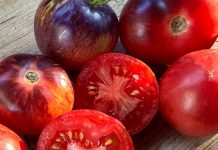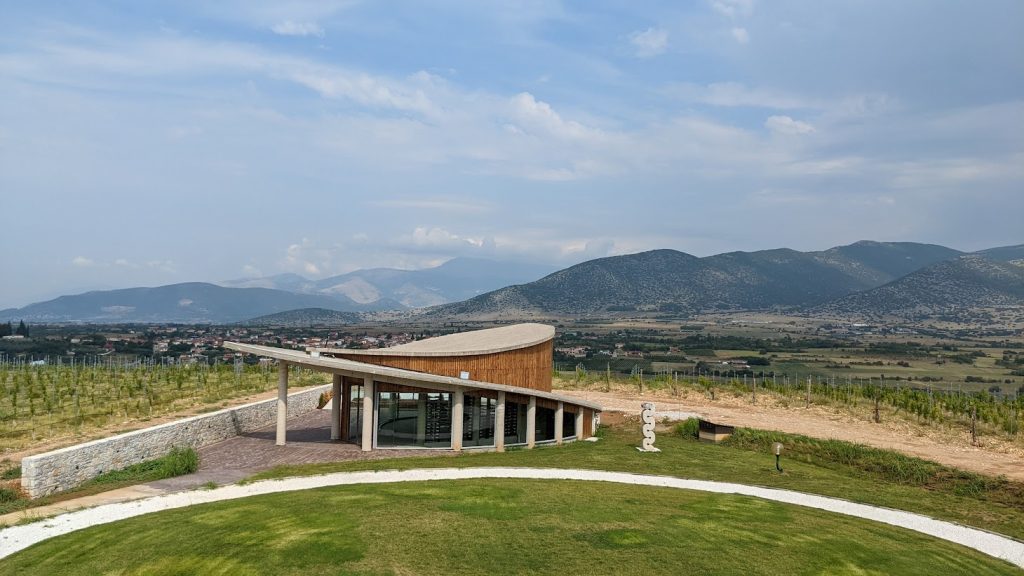
When it comes to wine, Italy and France always get the focus, but after visiting the Chateau Nico Lazaridis winery in northern Greece, I think there may be another contender in the Mediterranean region.
Greece has not traditionally been known as a “wine production country,” but considering it is still in its infancy, the future looks bright.
Our introduction to the Greek market was through our tour of the winery, and we came away with heads full of new knowledge, new friends, and the delicious lingering of wine on our tongues.
The Chateau produces about 1.4 million bottles annually and has been growing since being founded several decades ago by the self-named Nico Lazaridis.
With everything for production combined on one property, Lazaridis also offers a supreme collection of varietals with unique names and artwork on the labels, known as the Magic Mountain collection.
Their long list of mostly French varietals they produce can also be lengthy, including Whites consisting of Sauvignon Blanc, Semillon, Ugni Blanc (Trebbiano), Chardonnay, Muscat of Alexandria, and Reds including Cabernet Sauvignon, Merlot, Cabernet Franc, Grenache Rouge, and Sangiovese.
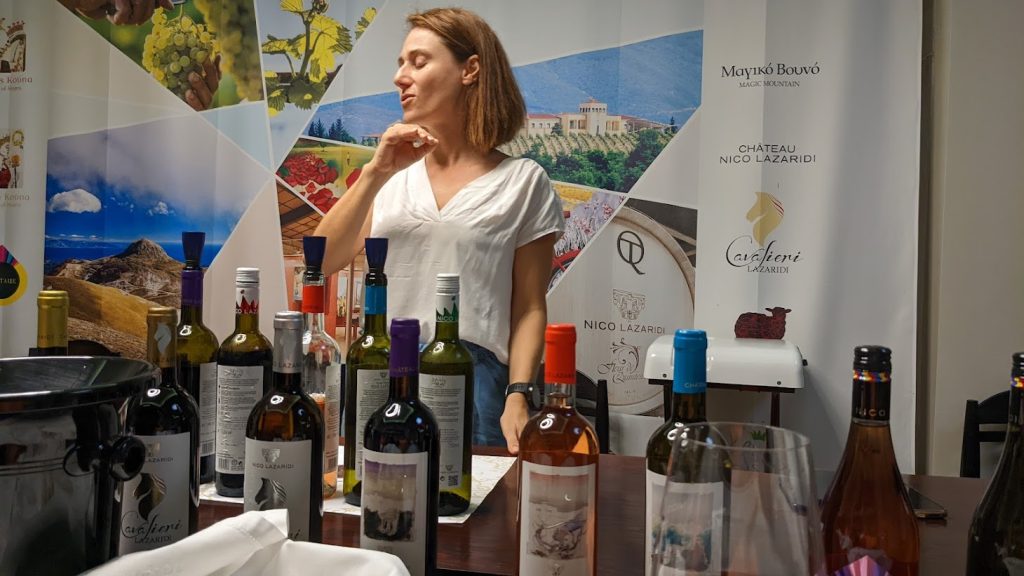
They also produce wines that were not familiar to me, including the Assyrtiko, a popular wine originated on the island of Santorini, and Malagousia, a vine that was almost near extinction until it was revived 40 years ago.
During our tour led by Federico Lazaridis, Nico’s son, we learned that the winery started as a hobby in the late 70s, but friends convinced him that he should sell the wine commercially, which it did starting in 1987.
“Every year we are learning new things,” said Federico: “Nature is our teacher. We are constantly discovering that we have a very unique area. It’s one of the richest environments of Greece in terms of flora. They say we have about 6,500 indigenous species of plants in all of Greece, and about 60 percent are here in the north.”
That means that the plant species are always influencing and affecting each other—and that includes the wine crops. Lazaridis and his team were initially unsure why their Cabernet Sauvignon had an intense smell of violets, and then realized it was because of the abundance of them in the vicinity.
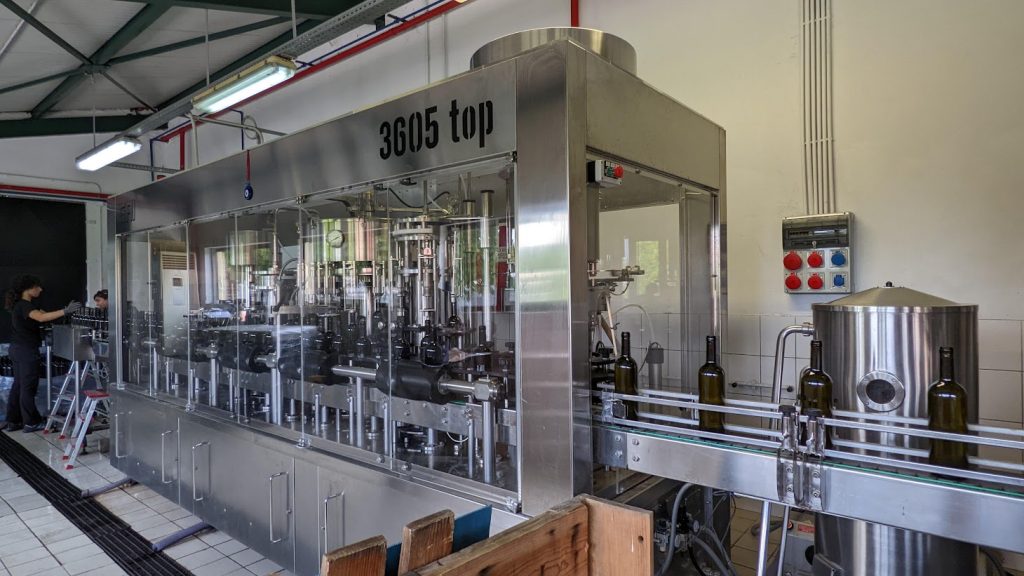
The area is also plentiful in wildlife, from bear, boars, deer, and wild herds of horses, plus thousands of different bird species. All these factors add into the mingling of seeds, pollen, and other forms of plant breeding. Along with the natural isolation of the north, they also have less man-made factors—including chemicals and pest sprays—that plague the more industrialized areas.
We spoke about the soil in the Drama region, and what makes it different—and especially suited for wine production. As a former Californian, the topography reminded me of Northern California and the prolific wine growing region of Napa Valley.
The area is highly affected by this mountainous terrain, and the nearby Rhodopes mountain range is almost 15,000 sq km, with most of that area in the adjoining Bulgaria, but almost 20 percent extends into the wine production soils of Greece.
This region, formerly known as Thrace, included most of Macedonia, the origin of Alexander the Great, and the mountains top almost 2200 meters elevation, comparable to the Appalachian range in the United States. They are considered to be one of the oldest ranges in Europe, comparable to the Alps.
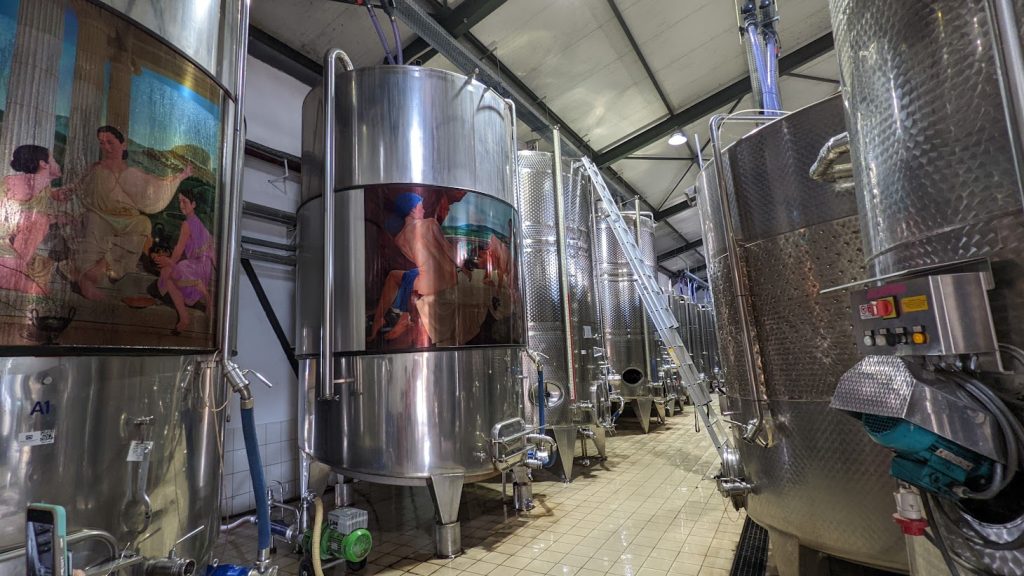
The Rhodopes have a tremendous influence on the weather, and therefore, the soil and the quality of the grapes grown.
Looking back at a longer historical timeline, the north of Greece is considered the furthest south that the great European glaciers extended almost 23,000 years ago. At their densest, the glaciers were 600 meters thick and enveloped much of central and northern Europe. When those glaciers melted, many of the minerals and elements flowed outward and irrigated these rich soils in Greece.
Much of this was known over the centuries, but until wine became an industry, no one quite understood the benefits of this unique location.
We spoke about Greece’s “role” in the wine production industry on a worldwide level, and Lazaridis shared the numbers that he followed.
“We have about 1400 wineries here, and every year we add more. The industry is growing dramatically and that is just over the past 10 years. Overall, we do not sell ‘cheap wines’ here in Greece and instead focus on quality. The white wines have been well recognized worldwide, but here in Drama, the reds are strong, and we have about a dozen wineries that put out a terrific product. We all support each other and work as partners and not competitors.”
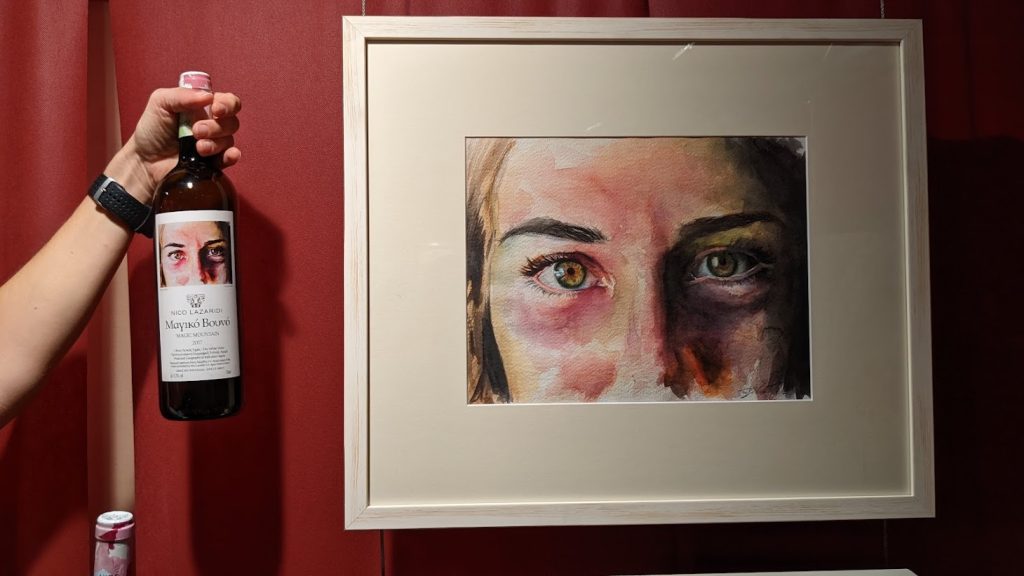
In the area there used to be a very large lake, but a century ago it was intentionally drained to create usable land to accommodate the repatriation of many new people coming in due to civil war. The lake was shallow, more swamp-like, and the resulting lakebed was especially rich.
Around the area are other mountain ranges, including the Magnolija, the Manikian and Pangeo, and the Falakro, which all affect the rains which contribute to the water table. They also influence the winds which are consistent in this area, and that drying effect helps reduce plant disease which thrives on moisture.
The weather is also warm enough that it is unlikely to freeze, and the Pirin range in Bulgaria forms a natural buffer.
All these factors add up to create what is being discovered year after year: wine.
And though the weather and soil make for a successful partnership, the Drama region has just one production season, which is late summer, and lasts about 60 days. But there is little down time since there is always something to do year-round.
As much as technology has affected most industries, when we spoke about the physical picking of grapes, Lazaridis stated that it is hand-picked as well as by machinery.
“We have to be respectful of our people and cannot have them working 24 hours a day.” Technology, however, is vital to the mechanics behind the aging and blending process since accurate measurements of temperature, humidity and moisture must be maintained.
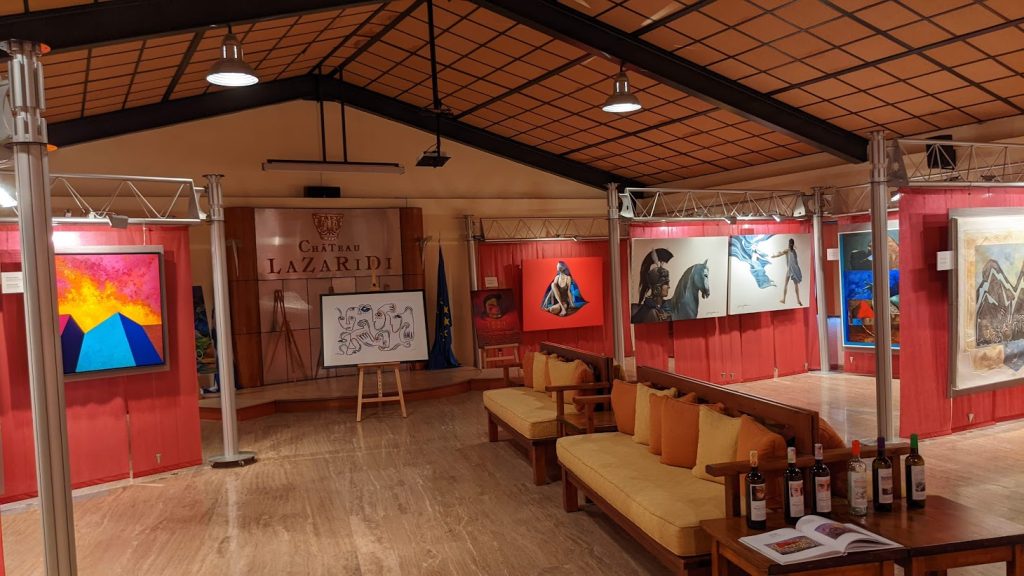
Additionally, all the poles holding the grapes have GPS. The foreman can monitor every plant by location and if there is any sign of disease, they can contain it in a proximate area. Drones are also employed since the acreage is so large, and along with quality control, there is also quantity control for maximum output.
As interesting as the tour of the winery was (and we sipped samples various wines), they also had a fascinating art gallery, with some of the most imaginative and beautiful artwork I have seen.
One of the most popular and delightful labels that the winery puts out is known as “Magic Mountain.” Every year they have a contest and invite artists to submit their work for a possible label on one of their wines. The response—and the results—have been terrific. The contest is open to Greeks and foreigners. They started this tradition in 1990 for their red selection, and in 1993 for their white.
We got a fascinating history of the company, made even more delightful as we sipped their delicious grapes. Myra, their marketing representative, was engaging and shared the “behind the scenes” look at the process of crushing, fermenting, storage, and bottling.
From picking to final delivery takes about four years, with two years spent in oak barrels and two in bottles. She shared that Magic Mountain was more than the name of their wine, but was also the source of Alexander the Great’s huge cache of gold, which were mined from the hills.
The saying, “Every picture tells a story” is very true, and the visuals from the art gallery, as well as the tour itself, made the wine experience even more personal. If you are in Drama I highly recommend you stop in for a tour.
Visit the winery website at https://www.chateau-lazaridi.com/en/homepage-english/
Norm Bour wrote for the Newport Beach Independent from 2013 till he left Orange County in 2019 for life on the road. He recently wrote the book “Nomadic Travel for All Ages” (available on Amazon) which documents his journey from the beginning, and shares experiences and lessons of life on the road. Even at age 69, he and his wife, Kat, age 70, travel like the younger generation and share their experiences on their website and Facebook blog called TravelYounger.com. Contact him at asknormb@gmail.com.



